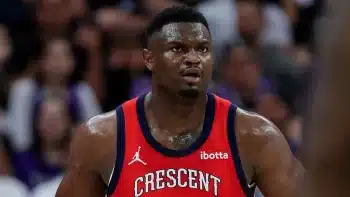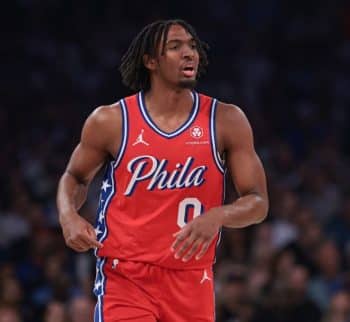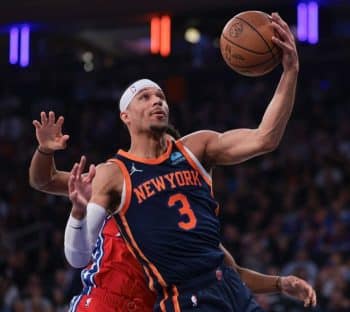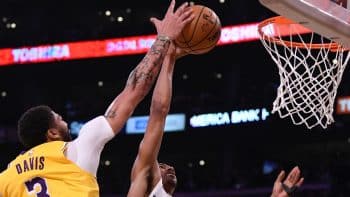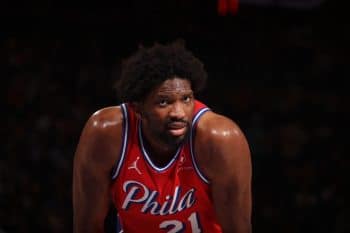NBA
Is Kyrie Irving’s Second Opinion a Cause for Concern?

The Boston Celtics are in one awful predicament.
With a third of the roster out due to injury, Brad Stevens has been forced into the impossible task of maintaining Boston’s championship aspirations with some subpar talent; while they have performed admirably, the likes of Abdel Nader and Semi Ojeleye wouldn’t see the same run they are currently on with most contenders. Gordon Hayward has missed the entire season, save a few minutes on opening night. Kyrie Irving, Jaylen Brown, Marcus Smart and Daniel Theis are all currently out, some for the year and others not. Key contributors Al Horford, Marcus Morris and others have missed time as well.
It couldn’t get worse, could it?
Well, it may just have. Reports surfaced Tuesday that Irving, who had missed time this season — including the last four games — with left knee soreness, is seeking a second opinion after a lack of progress in his recovery.
My understanding is that Kyrie Irving is getting a 2nd opinion on his left knee, perhaps as soon as tomorrow. Bottom line: he needs the screws out. Knee is flaring up. He will either play thru it going forward or … he will get thee screws out and won’t play at all. Stay tuned.
— Tony Massarotti (@TonyMassarotti) March 20, 2018
With lack of progress on his ailing left knee, Celtics All-Star Kyrie Irving plans to travel for a second opinion later this week, league sources tell Yahoo.
— Shams Charania (@ShamsCharania) March 20, 2018
In the wake of the Isaiah Thomas fiasco and his ailing hip last Summer, an injury that lingered deep into this season, the Celtics will likely be more than cautious with Irving, whom they gave up a haul (the rights to the 2018 Brooklyn Nets first round pick, most notably), to acquire. But one can only wonder if these persistent issues — Irving’s left knee was surgically repaired after he sustained a fractured kneecap in 2015, and he reportedly threatened the Cleveland Cavaliers with surgery this offseason before his trade to Boston — are a cause for concern for general manager Danny Ainge and the Celtics.
The situation presents the Celtics with a quandary, to say the least.
Knee injuries aren’t exactly a death-knell, but fans need not look far for to see the devastating effect they can have on NBA players (e.g. Derrick Rose). They can snowball and, over time, even the best players will break down. Regardless of the severity, Irving’s knee issue presents problems both now and in the future.
The problems now are obvious: the Celtics, already down Gordon Hayward, cannot afford to lose Irving if they are at all interested in making a Finals run this season. Boston struggles mightily on the offensive end when Irving and his 24.4 points, 3.8 rebounds and 5.1 assists aren’t on the court. In a playoff atmosphere, especially, the team would sorely miss his scoring prowess.
Looking ahead, if Irving is dealing with these problems at the age of 25, what could the future hold for the All-Star guard? Knee issues, most lower body issues in general, are often of the chronic variety, and constant maintenance can wear on people, both mentally and physically.
Just a season separated from a likely super-max payday, will the Celtics want to commit big-money long-term to potentially damaged goods?
If there is a silver lining in it all, it is the fact that 20-year-old rookie Jayson Tatum must now shoulder the scoring load, something that should go a long way in building on the potential that made him the No. 3 overall pick last June. And, should Irving miss the remainder of this season, exposure to the fires of the playoffs should only temper the Celtics’ young roster. In the event that Irving’s absence isn’t prolonged, time like this could only serve to strengthen the roster around him.
Still, Ainge brought Irving to Boston for a reason: he was meant to lead the Celtics into battle, alongside Gordon Hayward and Al Horford, in their quest for a title. Obviously, he can’t do that from the bench. Without Irving at 100 percent, the Celtics are not a championship caliber squad, healthy Gordon Hayward or not. That fact alone will make Irving’s situation one to monitor going forward and for the foreseeable future.
